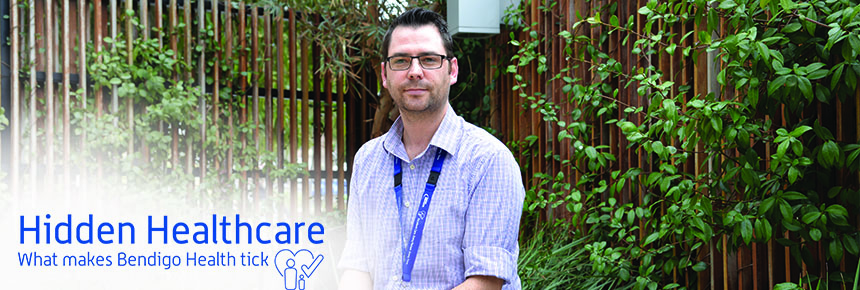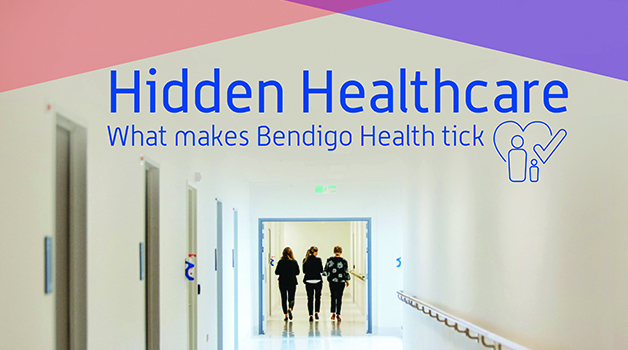 Aboriginal Hospital Liaison Officer Dave Kerr offers a reassuring presence at Bendigo Health for Aboriginal and Torres Strait Islander patients.
Aboriginal Hospital Liaison Officer Dave Kerr offers a reassuring presence at Bendigo Health for Aboriginal and Torres Strait Islander patients.
For some people, hospital admissions are nervous occasions, filled with uncertainty and worry.
For some Indigenous Australians, these feelings are magnified.
As Bendigo Health’s Aboriginal Hospital Liaison Officer Dave Kerr explains, the historical mistreatment of Aboriginals has harboured lingering distrust of large organisations or government institutions.
“The things that have happened in the past in hospitals and society more broadly is probably one of the reasons why there are barriers for some people coming into hospital and seeking medical advice when they need to,” he said.
This attitude has crossed generations in some Aboriginal families, which has a flow on effect to accessing health care now, he said.
Those that do seek medical help at Bendigo Health may have interacted with Dave – a proud Gunditjmara man.
Part of his role is to provide a reassuring presence and cultural support to patients who identify as Aboriginal or Torres Strait Islander.
He recalls recently helping reassure an Aboriginal woman who suffers from Post-Traumatic Stress Disorder throughout her surgical journey.
“I was with her before she went to the holding bay prior to surgery. It made her feel more at ease and she was very thankful,” he said.
Dave is part of an Aboriginal Support Service at Bendigo Health that has male and female staff for cultural reasons, such as men’s and women’s business.
The support service is not just limited to patients. It provides cultural awareness training for hospital staff.
Since February, 134 staff have attended the education sessions, which provide a brief historical context of the treatment of Aboriginal peoples and an outline of how staff can be mindful of these cultural sensitivities during their interaction with patients.
“It’s about making sure we as staff are culturally aware and provide a safe environment for people,” he said.
“We’ve still got a lot of work to do to ensure we’re culturally appropriate, aware and a safe place for people to come into. Cultural safety as a whole means that people come into the hospital and not feel like they’re being judged or discriminated against.”
***The video below details the partnership between Bendigo Health and Dja Dja Wurrung. It highlights how Indigenous culture is incorporated in the design and architecture of the new hospital building.
Bendigo Health is committed to improving the health of Indigenous Australians and is currently in a draft phase of a Reconciliation Action Plan (RAP).
The RAP includes a reconciliation vision, whereby Bendigo Health works in respectful partnership with Aboriginal and Torres Strait Islander peoples to achieve equity in life expectancy and to reduce premature death and suffering from preventable illnesses.
Some key actions of the draft plan include: raising internal understanding of Aboriginal and Torres Strait Islander cultural protocols through training and enabling more Aboriginal and Torres Strait Islander employment through traineeships and internships.
Bendigo Health is making progress in creating education pathways for Aboriginal and Torres Strait Islanders.
Earlier this year, the State Government created 10 Aboriginal Mental Health Trainee positions across Victoria, two of which are based in Bendigo.
The three-year program combines clinical placements with tertiary mental health studies.
One of Bendigo Health’s two trainees, Alva Connelly, believes embedding more Aboriginal Australians in the mental health service will improve Aboriginal access to services.
“It’s important to get more people into the service and enable more of our people to access the mental health services and also be part of the fight to get our own emotional wellbeing services in our communities that service our people as well - that’s what I would like to see in the long-term,” she said.

For more in our Hidden Healthcare series, click the link below.
Hidden Healthcare